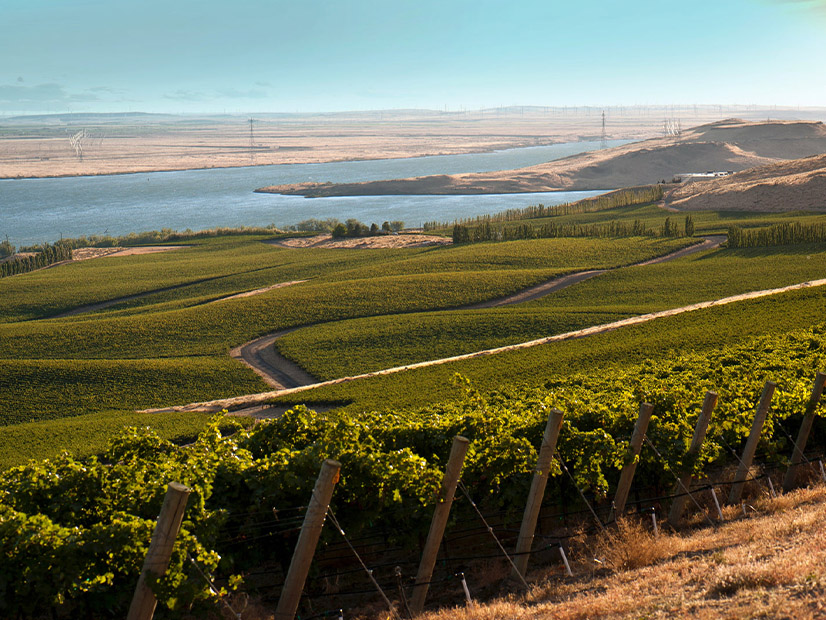
Two Washington bills seek opposite outcomes for the state’s Energy Facility Site Evaluation Council (EFSEC).
The council, comprising representatives from several state agencies, makes recommendations to the governor for final decisions on the placement of solar farms, wind turbines and other energy resources.
If a wind or solar developer opts to seek state approval instead of obtaining county permits, it can bypass county governments by going through EFSEC. Or a developer can choose to have the appropriate county government handle the permitting, sidestepping EFSEC.
Rep. Mark Klicker (R) has introduced one bill (HB 1871) to stop EFSEC from reviewing solar and wind projects until late 2023 after a task force studies the issue.
Klicker represents much of Benton County, where heavy opposition has surfaced to the Horse Heaven Hills wind turbine proposal — mostly because many residents of Washington’s Tri-Cities area don’t want to see windmills on their southern horizon. (See Wind Project Sows Controversy in Horse Heaven.) That bill showed up at a Tuesday public hearing before the House Environment and Energy Committee.
Also on Tuesday, the same committee heard testimony that mostly supported a bill (HB 1812) by Rep. Joe Fitzgibbon (D) that would bolster the authority of EFSEC while also boosting tribal participation in reviews when needed. Fitzgibbon is the committee’s chairman, meaning his bill has the better chance of moving beyond the committee.
On Knicker’s bill, Tuesday’s testimony stressed that Eastern Washington residents believe that wind and solar farms chip away at their tax bases and that their region is being unfairly targeted to provide most of the state’s alternative energy sources. Critics of EFSEC argue the council is not receptive to local concerns. Habitat concerns did not pop up in the hearing.
“You guys are in too big of a hurry to meet climate change goals,” said Klickitat County Commissioner Dan Christopher. Josh Weiss, a lobbyist for Benton County said, “Local planning is capable of dealing with these projects.”
“It does things to the people of rural Washington instead of doing things for them,” said Dave Barta, representing the Farm Bureau for Klickitat and Yakima counties.
However, EFSEC Chair Kathleen Drew said the council has approved only three wind and solar projects so far with only a handful still under review. “The vast majority of wind and solar [projects] have gone before the county governments. I believe [EFSEC’s] siting process is the most thorough environmental review.”
Testimony on Fitzgibbon’s bill was overwhelmingly in favor of the legislation. There was very little overlap between the people testifying on the two bills. The bulk of the support came from labor and environmental organizations.
“We’re for any effort to bring speed and certainty to the process,” Matt Steuerwalt of NextEra Energy Resources said. Kelly Hall of Climate Solutions said, “We need to consolidate bringing new jobs to the state.”
The bill would take EFSEC out of the umbrella of the Washington Utilities and Transportation Commission and provide it with its own separate budget. It would also add pipelines to its jurisdiction, streamline some procedures and bolster tribal participation in matters affecting the Native American tribes.
The hearing also produced the only mention of concerns about solar and wind projects encroaching on sensitive wildlife habitat. The Washington Department of Fish and Wildlife said routing the process through EFSEC would provide stronger protections for habitat.
The Tulalip, Yakama and Puyallup nations warned against streamlining the review process too much, not wanting the state to rubber-stamp proposals.
